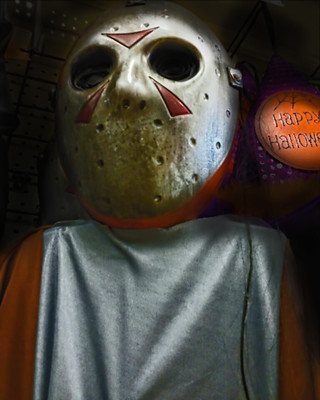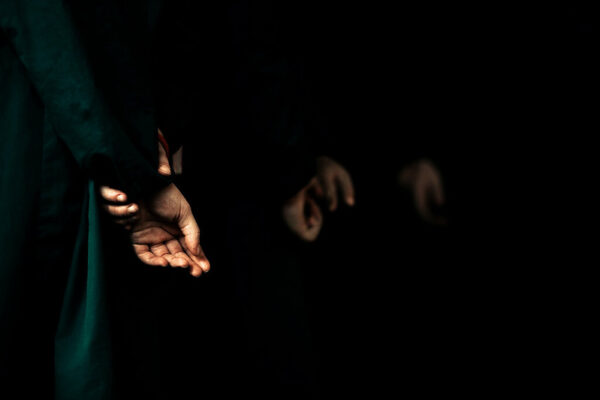by Brianna Jo Hobson
Apron string, tied and undone like an umbilical cord
Stitching needle loops through hypodermic buttonhole
I cinch every waist that dears to breathe,
Every pupil that tears to cry or prickle
Corset skin beset like silken organdy—unraveled, cut, slip knotted,
Kept, like, a woman, I suppose
The presser foot stands on the bulge of my neck,
But I survive, I survive. Every time through the skirt of pleated breath.
Prosthetic scissors are phallic, like Freudian appliqué.
I do what I can, to hide my dysmorphia, like crinoline under a dressing gown form
I slit, I snip, I rip, I sigh, but I can’t thread material to twill free-will
or save my midwife life,
With birthing pangs ruffled and sharpened to needlepoint,
My bleeding heart materializes as wire hanger anger sewn
Mannequin arms, and legs, attached by a string of crewel,
I, lay figure, abortifacient of expectations, am shot, sutured and brutally reused.
Only bodkin eye holes left to pierce and peep tom through
I stab and seam, bind and weave, emotions, only to have them locked away and closeted,
Rope of my rapist’s mother’s homespun tapestry, hangs there, in embroidery, “We always weep what we sew.”
A pincushion of unblinking gender sits in chest; caught mid-swallow,
between lips, amidst deep throat,
Undressed and depressed, crocheted in Kitchener stitch, I am a gentle whore,
Abhorred as a replica bore, forever, an Eve dummy
To be knit upon, hit and, ignored.
Listen to Brianna Jo Hobson read “Prosthetic” below.
Brianna Jo Hobson is a poet, essayist, and short fiction writer from the Bronx. Her work skews more towards horror as she is heavily inspired by folklore, surrealism, dark fairytales, and the gothic subculture. She was one of the recipients of The Award for Outstanding Achievement in Creative Writing in 2020 and is a part of LaGuardia’s graduating class of 2021. She aspires to have a career in book publishing and will be attending Baruch College in Fall 2021, pursuing her Bachelor’s in English. You can find her blog here and find her on Instagram @m0thluv.



